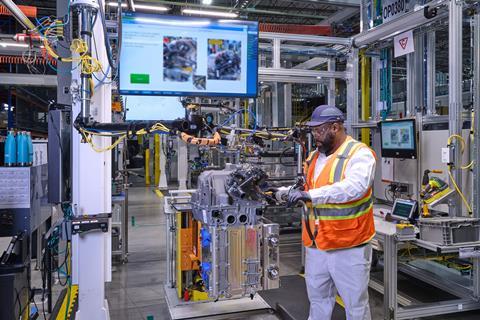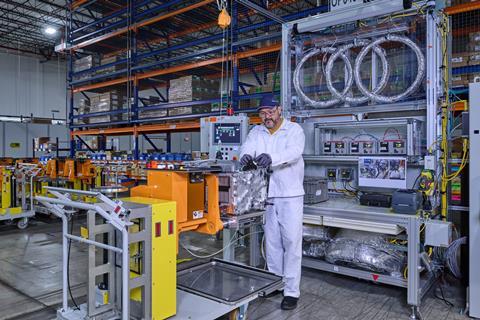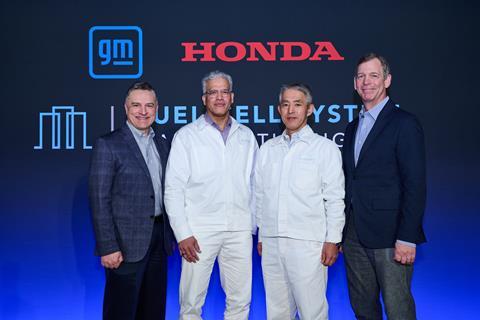Fuel Cell System Manufacturing (FCSM); the GM-Honda joint venture kicks off production of pioneering hydrogen fuel cell battery technology in Brownstown, Michigan to accelerate sustainable automotive solutions
GM and Honda joint venture; Fuel Cell System Manufacturing (FCSM), has commenced production in Brownstown, Michigan to push the commercialisation of hydrogen fuel cell technology. The collaboration has led to the establishment of the industry’s first 50/50 joint venture of a large-scale fuel cell production facility between two of the world’s leading automotive manufacturers. In the dash for the most optimal chemistry for battery production in the zero-emissions sustainability age, the GM-Honda collaboration has eyes on both the project and the tech, as OEMs and tier suppliers jockey for first-place in the sustainability race.

The Brownstown, Michigan facility, which came to fruition from a joint investment of $85 million, covers 70,000 sq. ft and has generated 80 positions for its operations, maintenance and oversight, thus far. The hydrogen fuel cell systems produced at the facility are ready to power a diverse array of products and ventures for both GM and Honda. FCSM President Suheb Haq emphasised the milestone, stating: “This is a historic day for the industry as GM and Honda are the first full fuel cell system manufacturing joint venture to begin volume production of fuel cells for transportation and beyond.”
Haq highlighted the comprehensive manufacturing approach, from handling raw materials to assembling complete systems, reflecting both OEMs’ dedication to producing high-quality, durable and affordable hydrogen fuel cell systems for various applications and clientele. The efforts are another indication of automotive companies and collaborators across several regions seeking to have as much end-to-end battery production control as possible, save in the case of impeding disruptions.

Echoing Haq’s sentiment, Tetsuo Suzuki, Vice President of FCSM, acknowledged the carmakers’ common efforts, saying: “We integrated the strengths of Honda and GM to create the most capable production system at this joint venture.” Suzuki elaborated on the production ethos, blending a mass production mindset with meticulous attention to quality, thereby readying the joint venture to address future customer needs as the potential hydrogen era dawns.
The idea behind the joint venture did not emerge ex nihilo. The GM-Honda collaboration dates back to 2013, when engineering teams embarked on developing the next generation of fuel cell systems. Their partnership and progressive efforts culminated in a framework that advanced performance and doubled the durability relative to the fuel cell in the 2019 Honda Clarity Fuel Cell. This was achieved through the use of corrosion-resistant materials and enhancements in low-temperature operation, according to Honda, via the partnership concentrating on cost-reduction strategies to make the technology more economically viable.

These joint strategies included scaling economies, optimising cell design, streamlining auxiliary equipment, sourcing commonality and minimising the use of expensive precious metals; as a result of which the new fuel cell systems are said to cost approximately two-thirds less to manufacture compared to those in the 2019 Honda Clarity Fuel Cell. Collaborations are drivers of innovation.
Honda underlines that significant strides have been made to fuse top-tier quality with improved manufacturing productivity at FCSM,. Innovative automation techniques for membrane-electrode-assembly production and fuel cell stack assembly have been introduced, setting new industry standards. The amalgamation of expertise from both GM and Honda, along with the integration of their respective intellectual properties, has been central to FCSM’s mission. The joint venture aims to produce commercially viable hydrogen fuel cell systems for a range of zero-emission applications in propulsion and energy management.

































No comments yet